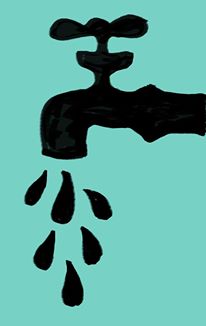Tags
concentrating in salah, improving salah, proper wudu, Salah, Salah advice, salah study, Salah tips, wudu, yasir qadhi wudu
 The importance of salah is emphasized indisputably in the Qur’an and sunnah. And the very significant prerequisite to our salah is Wudu. We are encouraged to make wudu throughout the day. In addition to cleansing us physically, it has great spiritual benefit. Our Prophet alayhis salam taught us that perfecting wudu is half of faith.
The importance of salah is emphasized indisputably in the Qur’an and sunnah. And the very significant prerequisite to our salah is Wudu. We are encouraged to make wudu throughout the day. In addition to cleansing us physically, it has great spiritual benefit. Our Prophet alayhis salam taught us that perfecting wudu is half of faith.
In one hadith, Prophet Muhammad alayhis salam said: Were it not for the fact that I know my ummah would have found it difficult, I would have commanded them to do wudu every time they prayed. Therefore even if we have a valid wudu, the Prophet alayhis salam would have encouraged us to make wudu again before praying the next salah.
We are told that wudu cleanses us of impurities that cannot be seen, that our sins are expelled with every drop of water that drips from us. Abu Umamah narrates that the Prophet alayhis salam said:
“Whoever stands up to perform his wudu, intending to offer salah, then cleans his hands, the sins of his two hands fall out with the first drop of water. Then, when he rinses his mouth, and draws water into his nose and expels it, the sins of his tongue and two lips fallout with the first drop of water. Then, as he cleans his face the sins of his hearing and seeing fallout with the first drop (of water). Then, when he cleans his two arms including the elbows and his two feet including the ankles, he becomes free of all his offenses and sins, just as he was the day his mother gave him birth.” He (then) said: “When he stands for salah Allah elevates his position and if he (merely) sits (without standing for salah) even then his sitting is free of sins.” (Musnad Ahmad)
Yasir Qadhi, in his khutbah on wudu mentioned that when wudu is made perfectly, the beauty of the believer on the Day of Judgment will be shown and demonstrated wherever the wudu was perfected. There will be light emanating from those limbs that were washed during wudu.
In another hadith our Prophet alayhis salam said:
“Whoever performs wudu, making wudu well, then says: (Ashhadu an la ilaha illallah, wahdahu la sharika lahu, wa ashhadu anna Muhammadan-abduhu wa rasuluhu, Allahummajalni minat tawwabin, waj’alni minal mutatahhirin) ‘I testify that none has the right to be worshipped but Allah Alone, there are no partners for Him. And I testify that Muhammad is His servant and Messenger. (Allahummaj-‘alni minat-tawwabina, waj-‘alni minal-mutatahhirin) ‘O Allah! Make me among the repentant, and make me among those who purify themselves.’ Then eight gates of Paradise are opened for him, that may enter by whichever of them wishes.” [11]
This hadith means that whoever perfects his wudu and then says the above dhikr, our Prophet alayhis salam said that all eight doors of Jannah will be flung open for him just after one wudu and dhikr made in the proper manner. This hadith shows us that the wudu is so beloved that the doors of Jannah fly open for the person who has completed it correctly.
A couple of Ramadans ago my friend ran across a video explaining the method in which the Prophet alayhis salam would make wudu. After trying it out, we spoke to each other about the difference we found it made. From a worldly perspective it takes so much effort to complete wudu in the way shown that we are less likely to be frivolous in our actions afterward. On the same note, it makes us more conscious while doing every step of the wudu, in turn making us more conscious during salah.
Additionally, the video shows that not a large amount of water is needed to make wudu. In my own experience, making wudu with a smaller amount of water, especially when placed in a container as opposed to flowing from the tap, resulted in a much better wudu. With less water we become more aware of what we intend to do with it in the first place. It gives the water a purpose and we are more conscious to cleanse our skin better because of the limit in quantity in contrast to a thoughtless outpouring of water. The limitation makes us more conscious, cleanses better, and saves water.
The method is shown in the video link below:
Additionally, Yasir Qadhi’s explanation on wudu was very interesting and much more comprehensive. Much of the material in this post has been extracted from his talk on the subject. For further viewing: Yasir Qadhi’s khutbah on wudu
